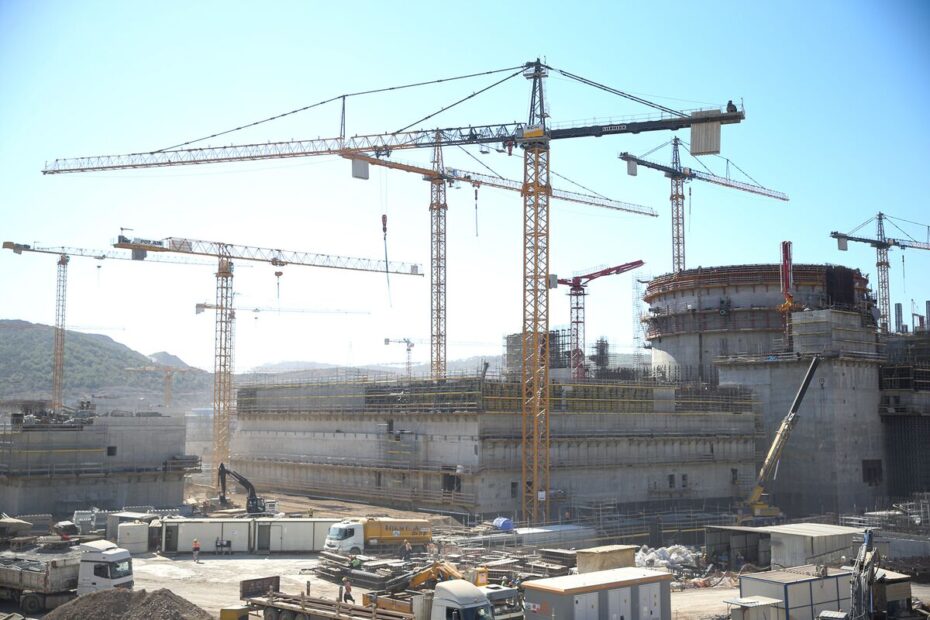Burkina Faso’s military leaders on Friday, October 13, signed a Memorandum of Understanding with Russia’ Rosatom to set up a nuclear power plant in the West African Country to help increase electricity supplies.
The nuclear power plant will enable the country to meet its energy needs. Energy and mines minister Simon-Pierre Boussim, and Nikolay Spasskiy, Rosatom’s deputy director general signed the deal.
What’s more, the deal follows a request made by Burkina Faso military leader Captain Ibrahim Traore to Russian President Vladimir Putin during the Russia-Africa summit held in St Petersburg in July this year.
Also Read: Russia – Africa Summit: Putin Woos Africa With Partnerships and Economic Opportunities
Traore, who seized power in a military coup in September 2022, has moved closer to Russia as its relationship with its former colonial power France sours.
Currently, the military leaders have aligned the country with Russia for economic and military support since they seized power last year.
Moreover, Burkina Faso has been touted as one of the least electrified countries globally, with only 21% of people connected to power.
The new deal will be part of Burkina Faso’s target to achieve 95% electricity access for urban areas and 50% for rural areas by 2030.
However, it is said the deal will help develop nuclear infrastructure and technology for medical and agricultural applications and implementation in Burkina Faso, while among other things, provide assistance to Burkina Faso in nuclear safety and security.
Burkina Faso gets most of its electricity from biofuels like charcoal and wood while oil products account for one-third of the total energy supply, according to the International Energy Agency.
Improving energy access key to meeting development goals in Africa
United Nations Conference on Trade and Development (UNCTAD) early this year, urged countries in sub-Saharan Africa to use their vast renewable energy reserves and pool resources through regional cooperation to forge a cleaner and greener future.
The UN agency reported that, although access to energy has increased in sub-Saharan Africa in recent years, it remains low, as more than 50% of the region’s population still lacks access to electricity.
This low access to energy has implications on health, education, poverty reduction and sustainable development, says an UNCTAD report entitled “Commodities at a glance: Special issue on access to energy in sub-Saharan Africa,”
The agency further called on governments in sub-Saharan Africa to accelerate their efforts to expand energy access to avoid falling short of SDG 7, which requires countries to ensure universal access to affordable, reliable and modern energy services by 2030.
According to the report, access to electricity in sub-Saharan Africa is the lowest of any world region due in part to the lack of grids that distribute electricity to consumers. And where grids exist, they’re outdated, unstable and lack customer connections.
Also, the lack of sufficient generation capacity, poor transmission and distribution to users, high connection fees, unpredictable income flows and high tariffs discourage consumers from adopting modern energy services.
The low demand and ageing plants and insufficient funding for infrastructure discourages suppliers from innovating and supplying cleaner energy.


